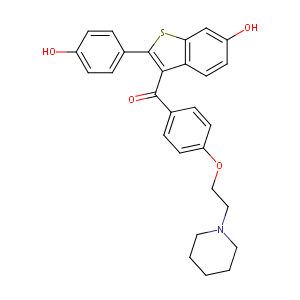| 1 |
Recurrent recessive mutation in deoxyguanosine kinase causes idiopathic noncirrhotic portal hypertension.Hepatology. 2016 Jun;63(6):1977-86. doi: 10.1002/hep.28499. Epub 2016 Mar 31.
|
| 2 |
Drugs@FDA. U.S. Food and Drug Administration. U.S. Department of Health & Human Services. 2015
|
| 3 |
URL: http://www.guidetopharmacology.org Nucleic Acids Res. 2015 Oct 12. pii: gkv1037. The IUPHAR/BPS Guide to PHARMACOLOGY in 2016: towards curated quantitative interactions between 1300 protein targets and 6000 ligands. (Ligand id: 7006).
|
| 4 |
Romidepsin FDA Label
|
| 5 |
Clinical pipeline report, company report or official report of the Pharmaceutical Research and Manufacturers of America (PhRMA)
|
| 6 |
URL: http://www.guidetopharmacology.org Nucleic Acids Res. 2015 Oct 12. pii: gkv1037. The IUPHAR/BPS Guide to PHARMACOLOGY in 2016: towards curated quantitative interactions between 1300 protein targets and 6000 ligands. (Target id: 620).
|
| 7 |
Influence of hepatic and intestinal efflux transporters and their genetic variants on the pharmacokinetics and pharmacodynamics of raloxifene in osteoporosis treatment. Transl Res. 2012 Oct;160(4):298-308.
|
| 8 |
The role of P-glycoprotein in the bioactivation of raloxifene. Drug Metab Dispos. 2006 Dec;34(12):2073-8.
|
| 9 |
Drug-drug interactions for UDP-glucuronosyltransferase substrates: a pharmacokinetic explanation for typically observed low exposure (AUCi/AUC) ratios. Drug Metab Dispos. 2004 Nov;32(11):1201-8.
|
| 10 |
Characterization of raloxifene glucuronidation: potential role of UGT1A8 genotype on raloxifene metabolism in vivo. Cancer Prev Res (Phila). 2013 Jul;6(7):719-30.
|
| 11 |
Inhibition of transcription, expression, and secretion of the vascular epithelial growth factor in human epithelial endometriotic cells by romidepsin. Fertil Steril. 2011 Apr;95(5):1579-83. doi: 10.1016/j.fertnstert.2010.12.058. Epub 2011 Feb 4.
|
| 12 |
Inhibitors of class I HDACs and of FLT3 combine synergistically against leukemia cells with mutant FLT3. Arch Toxicol. 2022 Jan;96(1):177-193. doi: 10.1007/s00204-021-03174-1. Epub 2021 Oct 19.
|
| 13 |
Hughes B: 2009 FDA drug approvals. Nat Rev Drug Discov. 2010 Feb;9(2):89-92.
|
| 14 |
Population pharmacokinetics of romidepsin in patients with cutaneous T-cell lymphoma and relapsed peripheral T-cell lymphoma. Clin Cancer Res. 2009 Feb 15;15(4):1496-503.
|
| 15 |
A phase I/II trial of the histone deacetylase inhibitor romidepsin for adults with recurrent malignant glioma: North American Brain Tumor Consortium Study 03-03. Neuro Oncol. 2011 May;13(5):509-16.
|
| 16 |
Population pharmacokinetics of romidepsin in patients with cutaneous T-cell lymphoma and relapsed peripheral T-cell lymphoma. Clin Cancer Res. 2009 Feb 15;15(4):1496-503.
|
| 17 |
FDA Label of Romidepsin. The 2020 official website of the U.S. Food and Drug Administration.
|
| 18 |
Chemoresistance to depsipeptide FK228 [(E)-(1S,4S,10S,21R)-7-[(Z)-ethylidene]-4,21-diisopropyl-2-oxa-12,13-dithia-5,8,20,23-tetraazabicyclo[8,7,6]-tricos-16-ene-3,6,9,22-pentanone] is mediated by reversible MDR1 induction in human cancer cell lines. J Pharmacol Exp Ther. 2005 Jul;314(1):467-75. doi: 10.1124/jpet.105.083956. Epub 2005 Apr 15.
|
| 19 |
Aberrant promoter methylation of the ABCG2 gene in renal carcinoma. Mol Cell Biol. 2006 Nov;26(22):8572-85.
|
| 20 |
5-Aza-2'-deoxycytidine and depsipeptide synergistically induce expression of BIK (BCL2-interacting killer). Biochem Biophys Res Commun. 2006 Dec 15;351(2):455-61. doi: 10.1016/j.bbrc.2006.10.055. Epub 2006 Oct 18.
|
| 21 |
Bortezomib and depsipeptide sensitize tumors to tumor necrosis factor-related apoptosis-inducing ligand: a novel method to potentiate natural killer cell tumor cytotoxicity. Cancer Res. 2006 Jul 15;66(14):7317-25. doi: 10.1158/0008-5472.CAN-06-0680.
|
| 22 |
Histone deacetylase inhibitors FK228, N-(2-aminophenyl)-4-[N-(pyridin-3-yl-methoxycarbonyl)amino- methyl]benzamide and m-carboxycinnamic acid bis-hydroxamide augment radiation-induced cell death in gastrointestinal adenocarcinoma cells. Int J Cancer. 2004 Jun 10;110(2):301-8. doi: 10.1002/ijc.20117.
|
| 23 |
A sequential treatment of depsipeptide followed by 5-azacytidine enhances Gadd45beta expression in hepatocellular carcinoma cells. Anticancer Res. 2007 Nov-Dec;27(6B):3783-9.
|
| 24 |
Abrogation of p21 expression by flavopiridol enhances depsipeptide-mediated apoptosis in malignant pleural mesothelioma cells. Clin Cancer Res. 2004 Mar 1;10(5):1813-25. doi: 10.1158/1078-0432.ccr-0901-3.
|
| 25 |
Interactions between bortezomib and romidepsin and belinostat in chronic lymphocytic leukemia cells. Clin Cancer Res. 2008 Jan 15;14(2):549-58. doi: 10.1158/1078-0432.CCR-07-1934.
|
| 26 |
Blocking downstream signaling pathways in the context of HDAC inhibition promotes apoptosis preferentially in cells harboring mutant Ras. Oncotarget. 2016 Oct 25;7(43):69804-69815. doi: 10.18632/oncotarget.12001.
|
| 27 |
Up-regulation of MDR1 and induction of doxorubicin resistance by histone deacetylase inhibitor depsipeptide (FK228) and ATRA in acute promyelocytic leukemia cells. Blood. 2006 Feb 15;107(4):1546-54. doi: 10.1182/blood-2004-10-4126. Epub 2005 Oct 13.
|
| 28 |
Antitumor effects of histone deacetylase inhibitor on Ewing's family tumors. Int J Cancer. 2005 Sep 20;116(5):784-92. doi: 10.1002/ijc.21069.
|
| 29 |
Enhanced transgene expression in urothelial cancer gene therapy with histone deacetylase inhibitor. J Urol. 2005 Aug;174(2):747-52. doi: 10.1097/01.ju.0000164723.20555.e6.
|
| 30 |
Enhancement of sodium/iodide symporter expression in thyroid and breast cancer. Endocr Relat Cancer. 2006 Sep;13(3):797-826. doi: 10.1677/erc.1.01143.
|
| 31 |
Identification of cytochrome P450 enzymes involved in the metabolism of FK228, a potent histone deacetylase inhibitor, in human liver microsomes. Biol Pharm Bull. 2005 Jan;28(1):124-9.
|
| 32 |
Involvement of P-glycoprotein and MRP1 in resistance to cyclic tetrapeptide subfamily of histone deacetylase inhibitors in the drug-resistant osteosarcoma and Ewing's sarcoma cells. Int J Cancer. 2006 Jan 1;118(1):90-7. doi: 10.1002/ijc.21297.
|
|
|
|
|
|
|


